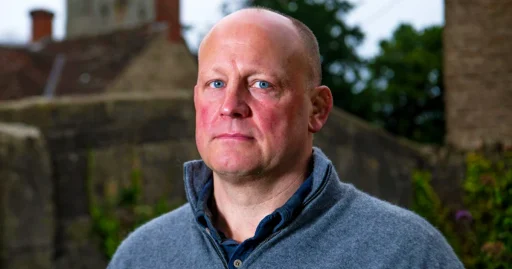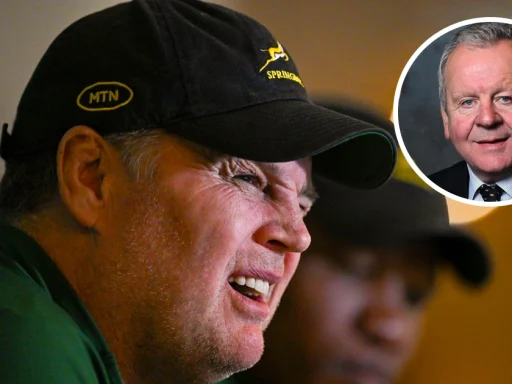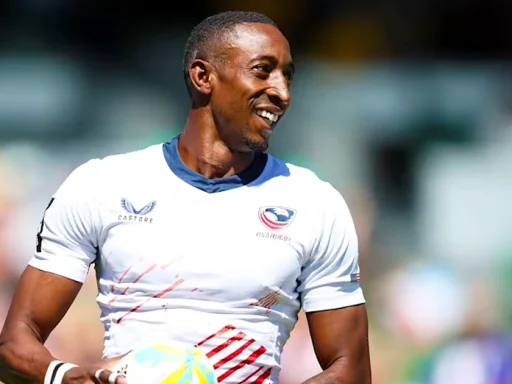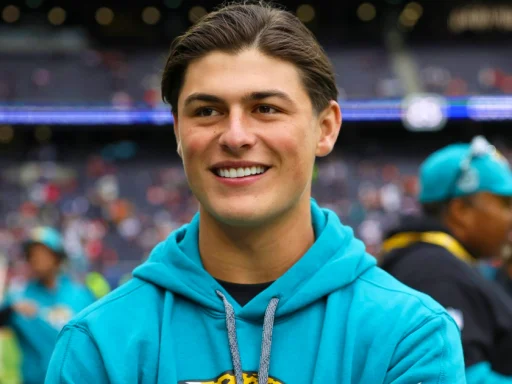Will Green, a retired prop who played for Wasps and Leinster, has won a legal battle that raises serious concerns over the tactics used to recruit plaintiffs for brain injury lawsuits.
The solicitor leading a series of multi-million pound brain injury claims in rugby has faced serious accusations in court regarding the recruitment of former players. Will Green, a former England international, claimed he was pressured by Richard Boardman, the head of Rylands Garth law firm, to falsely state that he had dementia.
In a remarkable court session, it was revealed that Rylands Garth pursued Green for thousands of pounds in legal fees after he declined to participate in their landmark lawsuit against rugby authorities. This legal action came despite an independent brain scan from Harley Street contradicting an “early-onset dementia” diagnosis previously provided by the firm, which advertised that they would cover the costs of comprehensive medical evaluations.
The judge dismissed Rylands’ claims, stating they had misrepresented their services to Green, describing their engagement letter as “at very best, vague, muddled and highly confusing.”
Green accused Rylands and Boardman of multiple misconducts, including:
- Failing to provide medical reports that confirmed his initial diagnosis after it was disputed.
- Pressuring him to join the firm’s lawsuit, which he believed “would have perpetrated a fraud.”
- Attempting to “bully” him into paying significant fees, including over £5,000 for tests that were available for only £1,600 on Harley Street and were offered free through the Rugby Football Union (RFU).
Green stated that the law firm had “behaved appallingly” and attempted to “bully” him into paying significant sums of money.
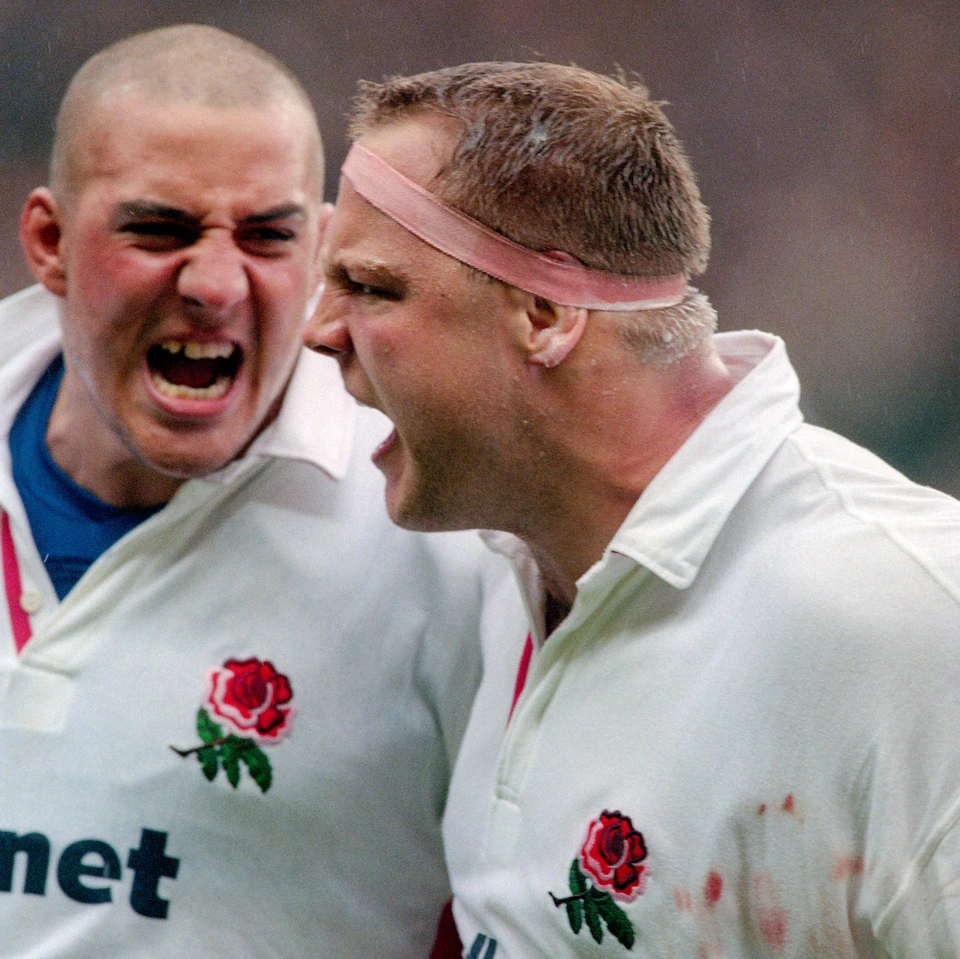
“My life turned into a complete turmoil”
During his testimony, Green remarked, “I just think they have behaved appallingly and I would go as far as to say that I am not the only person involved in this.”
Details from the October 4 hearing were disclosed after the judge denied a request by Rylands’ attorney to conduct it privately, calling the request “absolutely hopeless.”
Green, who enjoyed a successful 15-year career from 1992 to 2007, winning four Premiership titles and the Heineken Cup with Wasps, also earned four caps for England. His last international appearance was in a 2003 World Cup warm-up against Wales, and he was part of the broader training squad leading up to England’s historic victory.
Rylands first publicized its brain injury claims against rugby authorities in 2020, now representing 295 former players, including World Cup winner Steve Thompson, who experience various symptoms they assert stem from head impacts sustained during their careers. There were concerns that this legal action could threaten the financial stability of the sport.
Promoting its services on a “no win, no fee” basis, with tests funded by the firm, Rylands later initiated similar claims for numerous football and rugby league players. They have secured funding from legal finance firm Asertis, reminiscent of the “Mr. Bates vs. The Post Office” case that involved the wrongful convictions of sub-postmasters.
After experiencing migraines for years, Green accepted Rylands’ offer for a brain scan after Boardman approached him about potentially joining a “class action” lawsuit against rugby authorities. Although he never signed the engagement letter the firm sent, Green traveled to London for an MRI and separate neurological evaluation in February 2022.
For nine months, he received no update on his diagnosis, leading to immense stress and sleepless nights filled with anxiety over the possibility of brain damage. Ultimately, during a Zoom consultation with neurologist Dr. Steven Allder, Green was informed, “It looks like you have the signs of early-onset dementia.” He described this moment as one that sent his life into a “complete spiral.”
In a written statement, Green mentioned that when he requested neurological reports to validate the diagnosis, Dr. Allder told him they were not ready but assured him, “They will support these findings.” While he awaited those results, Rylands continued to pressure him to join their brain injury lawsuit.
“I feel quite exploited by them”
He voiced concerns in court, stating, “How can you sign up for a group litigation concussion case without the knowledge that you’ve got brain damage?”
More than a year after his initial tests, Green sought a second opinion from a prominent Harley Street specialist, who found no signs of brain injury in the MRI or neurological tests. He informed Rylands of these findings, yet they continued to press him to join the lawsuit, sending numerous emails urging him to participate.
He claimed, “To do so would have perpetrated a fraud on the court because the claimant’s medical experts’ diagnosis was found to be wrong. Yet, despite this, the claimant still tried to pursue me to sign up to the group litigation.”
After refusing to participate, Green received bills for legal and medical expenses, including around £5,500 for an MRI scan and neurological assessment that he noted would only cost £1,600 at the clinic he visited. The RFU, Premiership Rugby, and the Rugby Players’ Association have offered these tests at no charge for the past three years.
In written submissions to the court, Rylands and Boardman asserted that their November 4, 2021, engagement letter “clearly” outlined that Green could be held liable for their legal and medical costs. Boardman, absent from the hearing due to what his lawyer described as a “family emergency,” stated that he informed Green, “that once he had his medical testing and the results had been received, that we would then discuss in further detail how further fees would be raised and paid.”
He maintained that Rylands’ costs were “not unreasonable” and attributed the delay in Green’s diagnosis to the large number of potential claimants needing scans. Rylands’ representative claimed in court that Green breached the contract by not disputing the terms in the engagement letter, making him liable for costs including approximately £2,500 in legal fees.
Green remarked that the firm even charged him for being copied on group emails sent to at least 175 individuals.
In his written statement, he accused Rylands of numerous violations of the Solicitors Regulation Authority (SRA) code of conduct, asserting they took “unfair advantage” of him and misled him regarding their legal and medical costs and payment methods.
“I would question whether others have faced such treatment”
Representing himself in court, Green expressed, “This has taken a toll for nearly three years now. The emotional and mental strain on me and my family, along with significant costs, made me feel that they thought we would simply back down. I feel quite exploited by them.”
He emphasized, “I must stress that there are colleagues out there and friends that are struggling with cognitive issues. This is not me questioning any of them. They have found themselves in a very difficult position in their lives. However, I believe the underhand way that I have been treated raises concerns about whether others have been subjected to similar treatment, and if so, I find it alarming, very alarming.”
In his ruling, Deputy District Judge Pickering determined that a contractual agreement existed since Green consented to undergo the tests, despite not signing Rylands’ engagement letter. However, he labeled that letter as “at very best vague, muddled and liable to be highly confusing.”
The judge noted, “Mr. Green’s whole basis for engaging with this firm was that he would receive free medical testing, so I would have been satisfied that you would not be liable on the basis of the misrepresentation.”
Dr. Steven Allder, the neurologist who assessed Green, stated that the brain scan indicated an issue that warranted further examination, according to sources from The Telegraph.
The judge further ruled that Rylands had not sufficiently demonstrated that its medical costs were “reasonable” and expressed doubts about whether its legal costs “have been incurred on a reasonable basis,” ultimately dismissing the claim.
Even after the dismissal, Rylands’ lawyer sought to compel Green—who spent £20,000 fighting the case—to pay the legal costs incurred by the firm. This request was also denied.
A Rylands spokesperson asserted that they believed the 37-page engagement letter sent to Green was “very clear” but mentioned that “a revised version” has since been created. They added, “As with all such documents, we keep this letter under constant review.”
The firm represents around 900 claimants who have sustained brain injuries while playing the sports they loved, stating none have been required to pay for their testing.
“This was a straightforward small debt claim, which was handled by a third-party law firm. We utilize advanced testing considered the best in the world, as opposed to the less sophisticated testing employed by the NHS. Mr. Green’s tests were conducted by two highly experienced neuro-specialists, but he disagreed with the results and opted out of the action. We requested he cover some of those costs, following the terms of the engagement letter. We understand these cases are highly sensitive and wish Mr. Green all the best,” the spokesperson added.
They confirmed that former players diagnosed with brain injuries through tests arranged by Rylands might still be liable for legal and medical costs if they choose not to join or withdraw from the broader lawsuit.
Dr. Allder opted not to comment, but sources have indicated that during his Zoom consultation with Green, he explained that the latter’s brain scan revealed an issue necessitating further discussions with family members before reaching any final diagnosis.
Who is Richard Boardman, the Solicitor at the Forefront of Rugby’s Concussion Crisis?
Richard Boardman has emerged as a key figure for former rugby players concerned about the long-term health effects of their careers.
Following a $765 million (£585 million) settlement in 2013 for more than 4,500 American football players related to concussion injuries, it was anticipated that rugby would face similar legal actions. Boardman’s firm, Rylands Garth, has been leading the charge in England, representing former rugby players in their pursuit of justice. However, he has faced scrutiny over his recruitment methods and how he communicates with potential claimants. His approach has drawn comparisons to ambulance-chasing practices seen in the United States.
